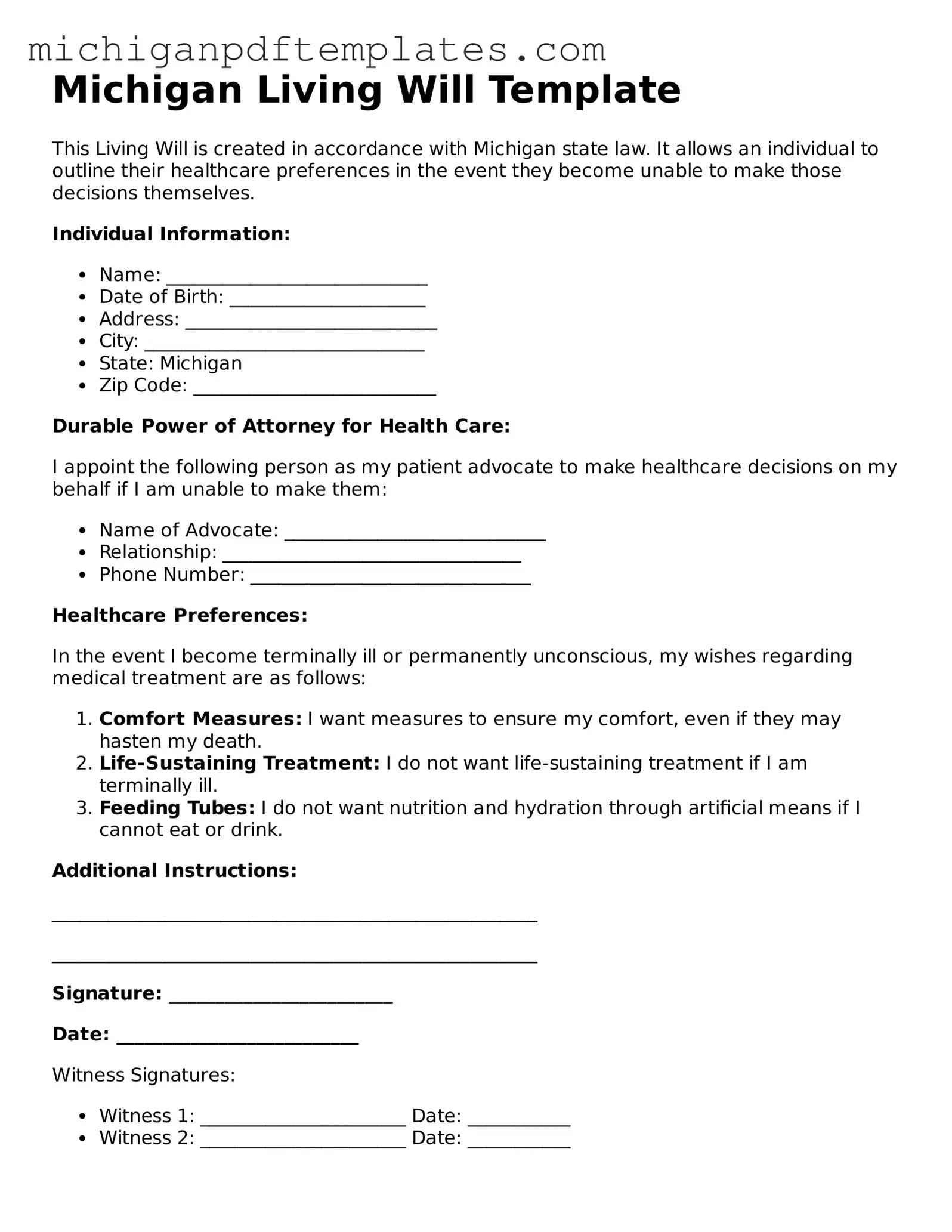Legal Michigan Living Will Template
A Michigan Living Will form is a legal document that outlines your preferences for medical treatment in the event that you become unable to communicate your wishes. This form allows you to specify the types of life-sustaining measures you do or do not want, ensuring that your healthcare aligns with your personal values. Taking the time to fill out this important document can provide peace of mind for you and your loved ones.
Ready to make your wishes known? Fill out the Michigan Living Will form by clicking the button below.
Get Your Form Now

Legal Michigan Living Will Template
Get Your Form Now

Get Your Form Now
or
▼ PDF Form
Finish this form quickly and move on
Fill in and complete Living Will online quickly.